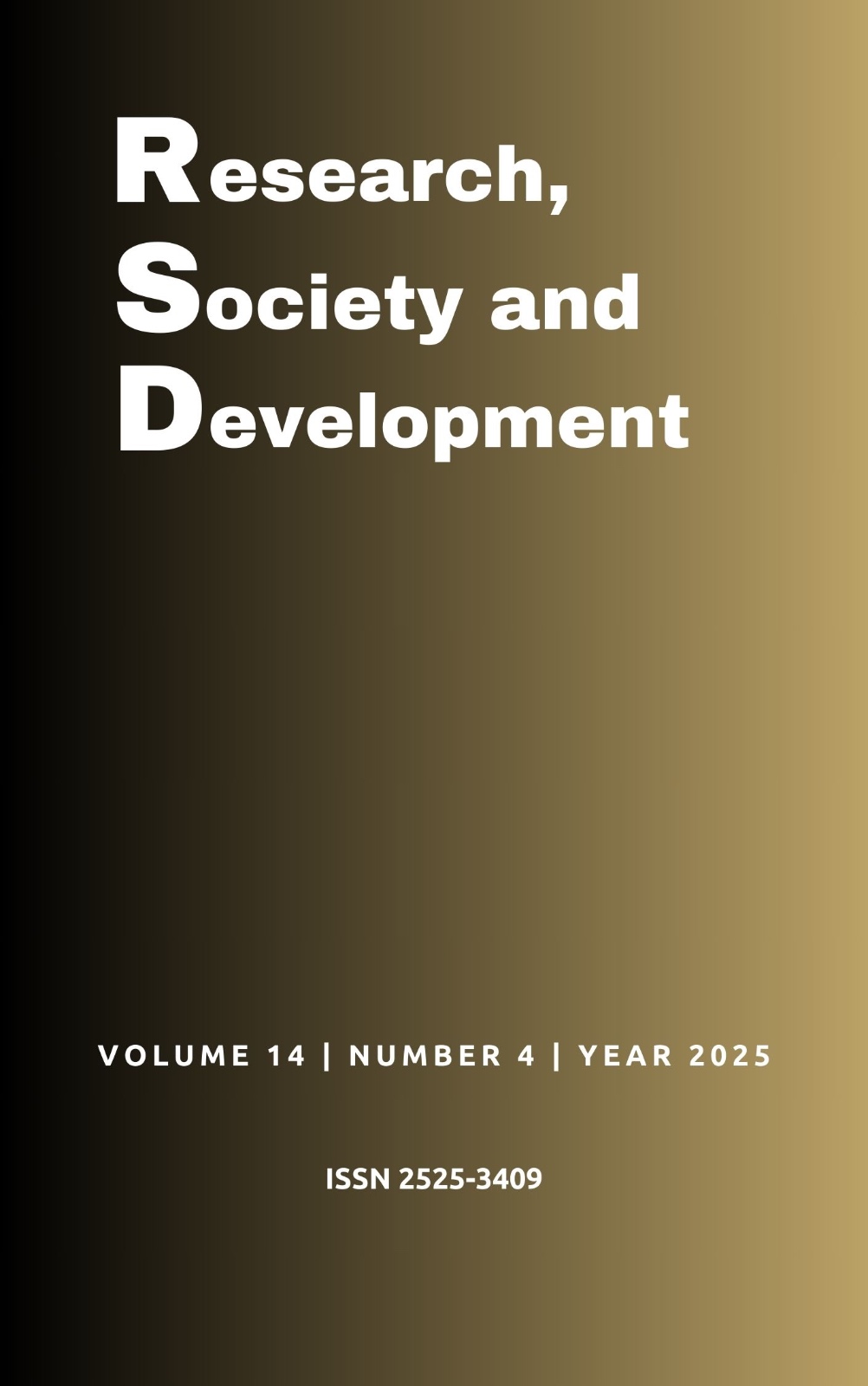Analysis of Mozambique's Public Policies in the sugar-energy sector
DOI:
https://doi.org/10.33448/rsd-v14i4.47091Keywords:
Public Policies, Energy matrix, Sugarcane.Abstract
A concerted effort has been underway to identify novel solutions that will supplant the use of fossil fuels, the combustion of which has been identified as a primary contributor to greenhouse gas emissions. The objective of this paper is to analyze Mozambican public policies regarding the dissemination of the sugar cane sector and its contribution to the national energy matrix. The analysis revealed that the prominent sugar companies, namely Maragra, Xinavane, Chemba, Marromeu, and Mafambisse, collectively produced 2,737,556 tons of sugar cane during the 2019/2020 harvest season, cultivated across an expanse of 47,351 hectares. Regarding sugarcane production, the country possesses the capacity to yield 766,516 tons of bagasse, which has the potential to generate approximately 331,135 megawatt-hours (MWh) per annum. This would be sufficient to supply 689,864 inhabitants per hour. However, the prevailing public policies in Mozambique's energy sector currently do not mandate the sale or supply of surplus energy produced by industries to the national electricity grid.
Downloads
References
Ajala, E. O., Ighalo, J. O., & Ajala, M. A. (2021). Sugarcane bagasse: A biomass sufficiently applied for improving global energy, environment, and economic sustainability. Bioresource and Bioprocessing, 8(1), 1–17. https://doi.org/10.1186/s40643-021-00440-z
Carpio, L. G. T., & De Souza, F. S. (2017). Optimal allocation of sugarcane bagasse for producing bioelectricity and second-generation ethanol in Brazil: Scenarios of cost reductions. Renewable Energy, 111, 771–780. https://doi.org/10.1016/j.renene.2017.05.015
Cuvilas, C. A., Jirjis, R., & Lucas, C. (2010). Energy situation in Mozambique: A review. Renewable and Sustainable Energy Reviews, 14(7), 2139–2146. https://doi.org/10.1016/j.rser.2010.02.002
Ellabban, O., Abu-Rub, H., & Blaabjerg, F. (2014). Renewable energy resources: Status, future prospects and their enabling technology. Renewable and Sustainable Energy Reviews, 39, 748–764. https://doi.org/10.1016/j.rser.2014.07.113
Guerra, S., et al. (2020). Sugarcane: Biorefinery, technology, and perspectives. In S. Guerra et al. (Eds.), Sugarcane Biorefinery, Technology and Perspectives (pp. 33–64). Academic Press. https://doi.org/10.1016/B978-0-12-814236-3.00003-2
Gutiérrez, A. S., Eras, J. J. C., Hens, L., & Vandecasteele, C. (2017). The biomass-based electricity generation potential of the Province of Cienfuegos, Cuba. Waste and Biomass Valorization, 8(3), 751–760. https://doi.org/10.1007/s12649-016-9687-x
International Energy Agency. (2023). SDG7: Data and projections. https://www.iea.org/reports/sdg7-data-and-projections
Instituto Nacional de Estatística. (2019). Censo geral de população e habitação. Maputo.
Mataveia, M. (2013). O processo de regulamentação do sector de bioenergia em Moçambique. In Workshop sobre a Produção Sustentável da Biomassa no Sudeste de África, Maputo.
Mnisi, M. S., & Dlamini, C. S. (2012). The concept of sustainable sugarcane production: Global, African and South African perceptions. African Journal of Agricultural Research, 7(12), 1837–1844. https://doi.org/10.5897/AJAR12.446
Ministry of New and Renewable Energy. (2020). Bioenergy. Ministry of New and Renewable Energy, Government of India. https://mnre.gov.in/bio-energy/current-status
Moçambique. (2000). Resolução nº 24/2000 de 3 de Outubro: Estratégia de Energia. Maputo.
Moçambique. (2009a). Resolução nº 22/2009 de 21 de Maio: Política e Estratégia de Biocombustíveis. Maputo.
Moçambique. (2009b). Resolução nº 62/2009 de 14 de Outubro: Política de Desenvolvimento de Energias Novas e Renováveis. Maputo.
Perea-Moreno, M. A., Samerón-Manzano, E., & Perea-Moreno, A. J. (2019). Biomass as renewable energy: Worldwide research trends. Sustainability, 11(3), 863. https://doi.org/10.3390/su11030863
Pereira, A. S., Shitsuka, D. M., Parreira, F. J., & Shitsuka, R. (2018). Metodologia da pesquisa científica (1ª ed.). Ed. UAB/NTE/UFSM. https://repositorio.ufsm.br/handle/1/15824
Ruggeri, G., & Corsi, S. (2019). An analysis of the fairtrade cane sugar small producer organizations network. Journal of Cleaner Production, 240, 118191. https://doi.org/10.1016/j.jclepro.2019.118191
To, L. S., Seebaluck, V., & Leach, M. (2017). Future energy transitions for bagasse cogeneration: Lessons from multi-level and policy innovations in Mauritius. Energy Research & Social Science, 34, 1–13. https://doi.org/10.1016/j.erss.2017.10.051
Downloads
Published
Issue
Section
License
Copyright (c) 2025 Domingos Mário Zeca Fernando; Francisco José Noris; Amina Berta da Costa Intina; Alexandre Dal Pai

This work is licensed under a Creative Commons Attribution 4.0 International License.
Authors who publish with this journal agree to the following terms:
1) Authors retain copyright and grant the journal right of first publication with the work simultaneously licensed under a Creative Commons Attribution License that allows others to share the work with an acknowledgement of the work's authorship and initial publication in this journal.
2) Authors are able to enter into separate, additional contractual arrangements for the non-exclusive distribution of the journal's published version of the work (e.g., post it to an institutional repository or publish it in a book), with an acknowledgement of its initial publication in this journal.
3) Authors are permitted and encouraged to post their work online (e.g., in institutional repositories or on their website) prior to and during the submission process, as it can lead to productive exchanges, as well as earlier and greater citation of published work.


